Travel should be more than just ticking destinations off your list. It’s a chance to discover beautiful landscapes and architecture, immerse yourself in diverse cultures, connect with people from all walks of life, taste new flavours, and give your body and soul a break from the daily routine and business.
While exploring new places is exciting, it’s important to remember that our actions have an impact on the destinations we visit and the communities we encounter. That’s where travel etiquette comes in — it’s a key part of being a responsible and mindful traveller.
In this post, we’ll explore why travel etiquette matters and share helpful tips to help you explore Thailand with respect, compassion, and cultural appreciation.
What Is Travel Etiquette?
Travel etiquette means respecting local customs and being aware of the cultural differences and traditions wherever you go. It’s not just about good manners — it’s about creating meaningful, enriching experiences for yourself and others.
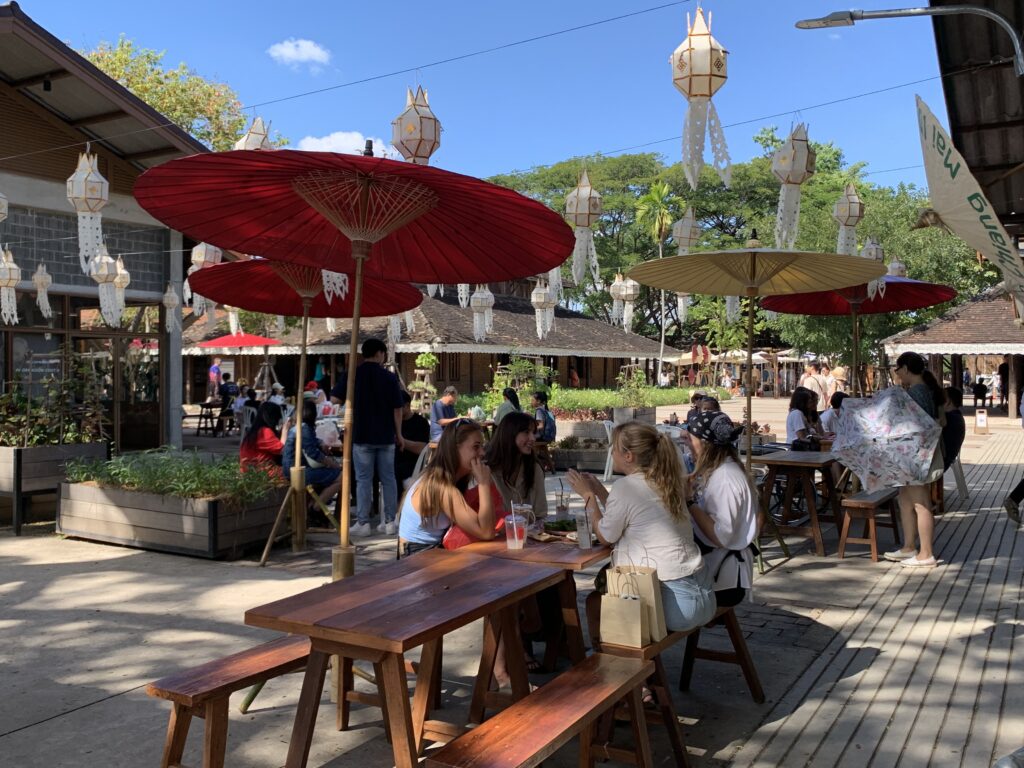
Why Travel Etiquette Matters
The world is a beautiful patchwork of cultures, beliefs, and traditions. By respecting cultural diversity, we foster greater understanding and harmony.
As travellers, we have a responsibility to protect the natural beauty and cultural heritage of the places we visit. Responsible behaviour helps preserve the authenticity of the destinations and ensure these places remain intact for future generations.
Last but not least, being courteous and culturally aware opens the door to genuine interactions with locals — the kind of connections that make travel meaningful and unforgettable.
General Travel Etiquette
1. Do Some Homework Before Your Trip
Before your trip, learn a bit about the customs, traditions, local laws and a few phrases. It’ll help you avoid awkward moments and show locals that you care. Simple words like hello, thank you, excuse me and delicious go a long way — and locals appreciate the effort.
2. Dress Respectfully
Clothing should be modest and appropriate to the setting, especially when visiting cultural attractions or conservative areas such as temples and local communities. When in doubt, cover your body, shoulders and knees or carry a big shawl or a sarong with you.
3. Ask Before You Take Photo
Always ask permission before taking photos of people, religious sites, or private property.
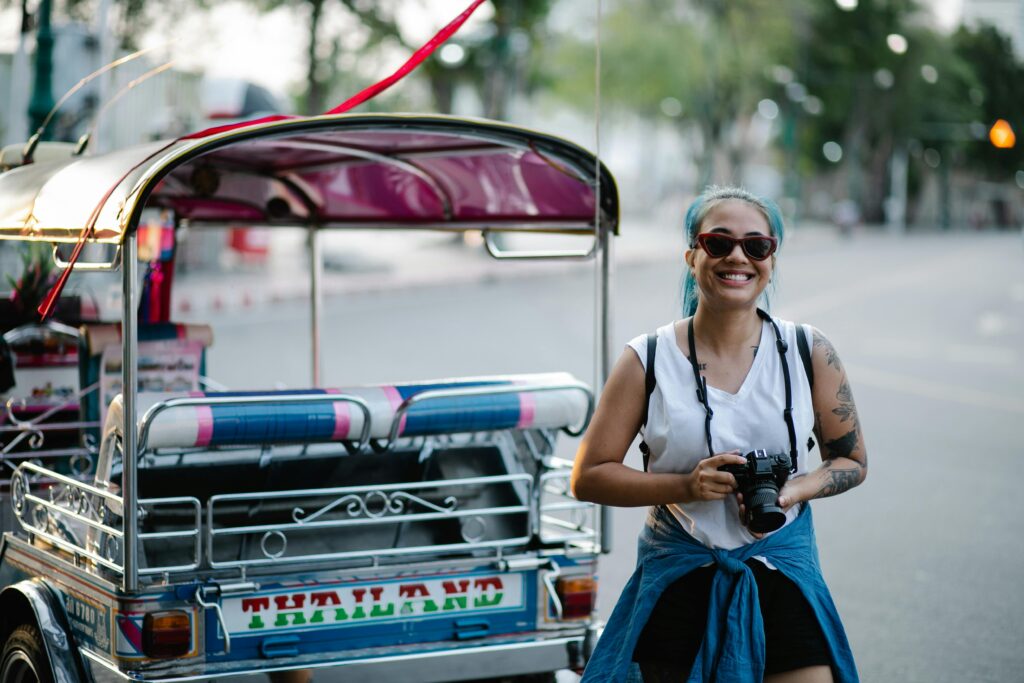
4. Be Open Minded
Travelling is about embracing new experiences and learning from cultural differences. Overly criticising local customs or cuisine based on your own standards not only shows disrespect but also undermines your experience.
5. Keep Your Voice Down
Loud voices and disruptive behaviour can spoil the peaceful vibe of temples, cafes, or nature spots. Be mindful of your surroundings.
6. Be Kind
Travel can come with inconvenience and surprises. A smile, a deep breath, and a sense of humour will carry you far.
7. Leave No Trace
Pick up after yourself, avoid single-use plastic, and treat every place like it’s your home.
Travel Etiquette in Thailand: A Guide to Respectful and Mindful Exploration
Thailand is known for its laid-back vibe and friendly locals, who are generally forgiving of cultural missteps. But showing respect for Thai traditions will earn you even warmer welcomes — and a smoother travel experience.
Let’s look at some dos and don’ts to help you navigate Thai etiquette like a pro:
Thailand Do’s
1. Respect Thai Culture
Be open, curious, and considerate when encountering local customs and traditions. If you are unsure, it’s okay to ask.
2. Dress Modestly at Temples and Palaces
Temples are sacred space. Cover your body, shoulders and knees. Some places offer sarongs to borrow, but it’s handy to bring your own.
3. Treat Buddha Images with Respect
All Buddha images are considered sacred. Don’t climb on them, sit too close, or treat them as photo props.
4. Take Off Your Shoes
Remove your shoes before entering temples and homes — and sometimes spas and shops. A pile of shoes at the entrance is your cue.
5. Smile Often
A Thai smile can mean hello, thank you, sorry, or no worries. It’s a gesture of friendliness here. While Thais are more forgiving and less confrontational than many other nationals, don’t cross the line.
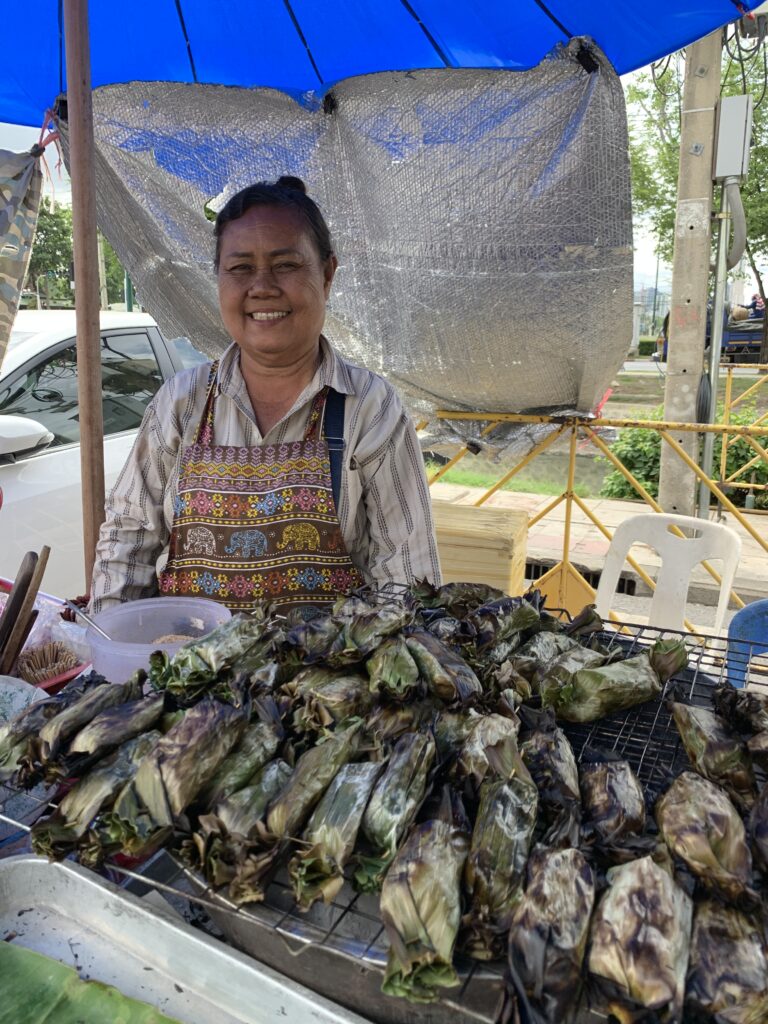
6. Embrace the Mai Pen Rai Attitude
This popular Thai phrase means “never mind” or “it’s all good.” Let go of stress and roll with the punches — it’s part of the Thai way of not stressing over small stuff.
7. Return the Wai
Wai (palms pressed together with a slight bow) is a traditional Thai greeting. Return it with a Wai or a smile when someone offers it to you.
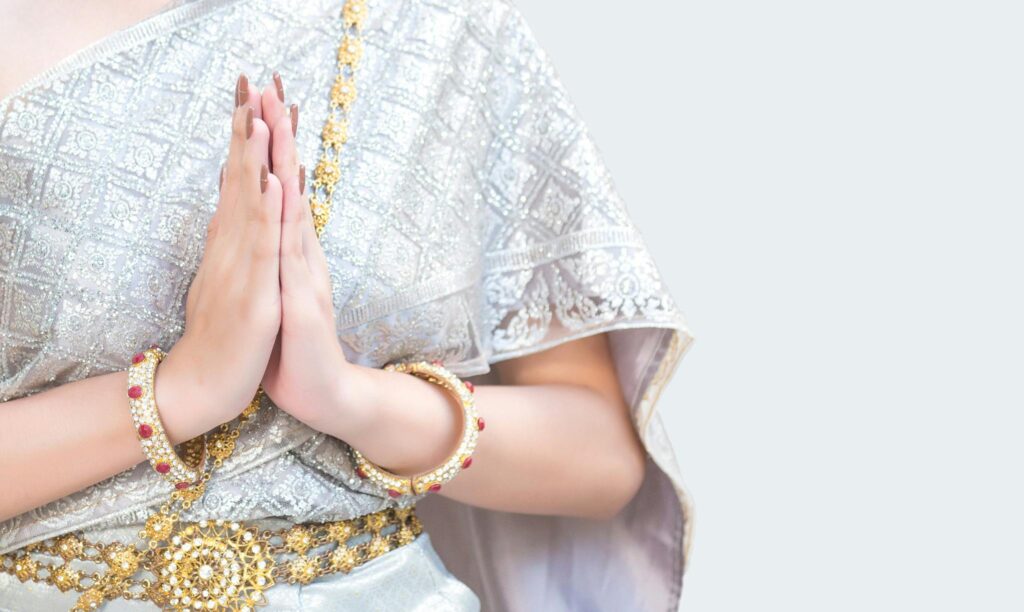
8. Use a Serving Spoon
Thai people always use a serving spoon when eating family-style. Everyone has their own plate of rice, and the shared dishes in the middle are served using separate serving spoons. It is polite to accept food or drink when it is offered to you, even if it’s just a small amount.
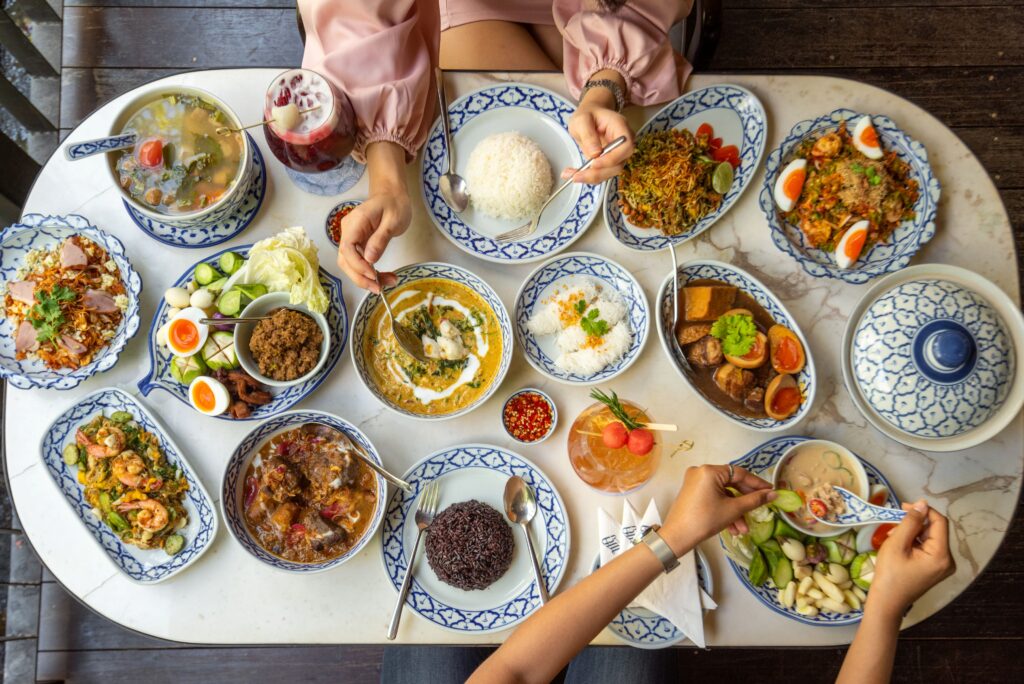
9. Learn Basic Thai Words
Sawasdee = Hello, Khob Khun = Thank you, Khor Tote = Excuse me or sorry and Aroi = Delicious are some of the useful Thai words for travellers.
I have put together a list of useful Thai words for travellers here.
Thailand Don’ts
1. Don’t Point or Use Your Feet Improperly
Feet are considered the lowest, dirtiest part of the body. Don’t point with them, put them on a table or chair, or use them to pass things to others. Also try to keep them pointed away from people, especially someone older than you.
2. Don’t Step on Thresholds
The raised threshold at temple doors is believed to house protective spirits. Always step over it, not on it.
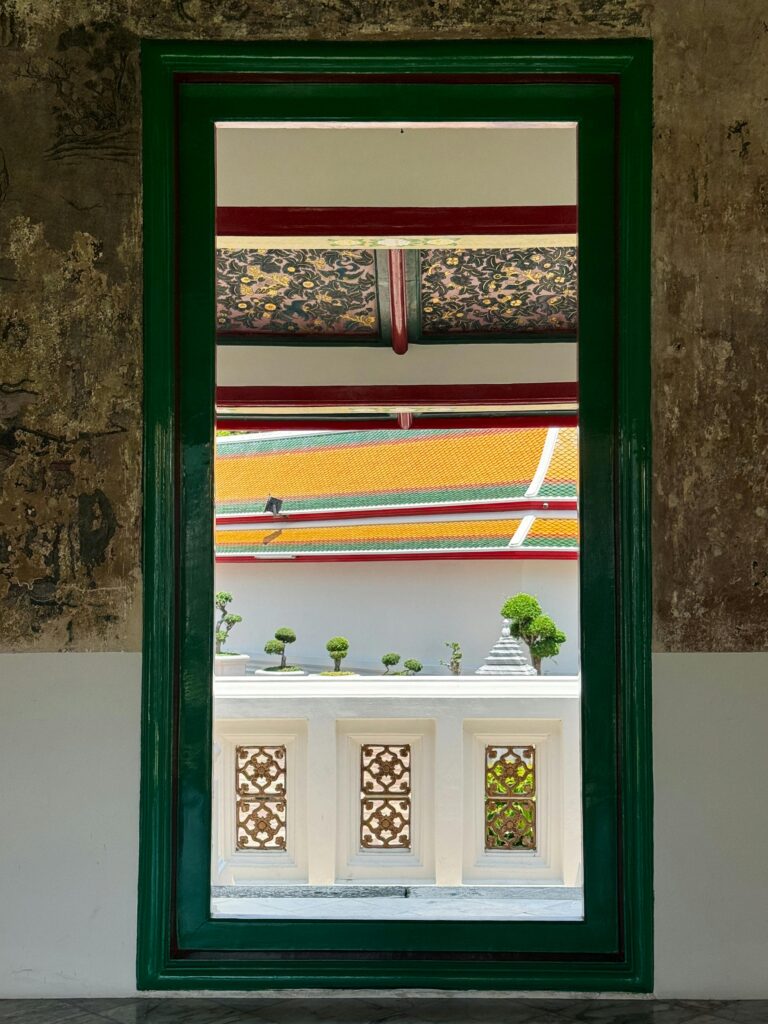
3. Don’t Raise Your Voice
Thais value calmness and self-control. Losing your temper won’t help — and may make things worse.
4. Don’t Touch Monks (Especially If You’re a Woman)
Women should avoid physical contact with monks or handing items directly to them. Also don’t climb Buddha statues at temples. Buddhism is the main religion in Thailand, so the Buddha is highly revered by locals.
5. Don’t Disrespect or Make Fun of the Royal Family
Thailand has strict laws protecting the monarchy. Avoid making any negative comments or jokes about the royal family.
6. Don’t Buy Buddha Statues as Souvenirs
7. Don’t Touch People’s Heads
The head is considered sacred. Even a friendly head pat can be offensive unless you’re very close to the person.
8. Don’t show excessive displays of affection in public
By following these simple guidelines, you’ll not only show respect for Thai culture — you’ll also unlock deeper travel experiences. So pack your curiosity and open heart — and let the Land of Smiles welcome you with open arms.
